In the latest of this series of interviews by Iain Martin, presenter of The Ski Podcast, he spoke to BBC Ski Sunday presenter Ed Leigh.
Ed Leigh first commentated for the BBC at the 2006 Winter Olympics in Turin, where he covered snowboarding. His unique style of commentary in a relatively new Olympic sport attracted attention, and later that year he joined Graham Bell as co-presenter of the BBC’s Ski Sunday, the UK’s premier snowsports programme, becoming the show’s first snowboarding presenter.
Now, almost two decades later, Ed still presents Ski Sunday and has now commentated for the BBC at nine Olympic Games, including the last four Summer Olympics, where he specialises in the action sports of BMX and skateboarding.
How has the 2024/25 Ski Sunday season been?
Every day you’re up at altitude, you’re in beautiful resorts. But the reality is that I am a part-time TV presenter and full-time driver and baggage handler! You’re moving so much kit around the Alps all the time.
The season started with a flight to Munich, then we drove four and a half hours to Klagenfurt in Austria, then over to Madonna di Campiglio for three or four days. After that I drove six hours to Laax, then it was five and a half hours back to Cortina, do most of the show in a day, then back to Laax, then on to Kitzbühel.
So, it is amazing, but you live out of a bag for seven weeks. I never take it for granted though. I know how privileged I am.
You and Chemmy [Alcott] are the presenters, but how many other people are on the team?
We have a producer whose job it is to organise everything, from parking passes and your accreditations, to getting the scripts and locations planned.
For example, in Klagenfurt, his job was talking to the British team about how we can access Chris McCormick and Mia Brooks.
We have a cameraman on site, plus a guy called Dave Horwell back in the UK. Dave has an archive of pretty much every episode of Ski Sunday – all the features we’ve ever done – and he edits all our footage and puts the show into a finished format.
How do you decide where to shoot your pieces to camera?
Between us we know a lot of the resorts and know where to shoot and how to shoot, but finding a good location in a new resort can be a challenge. We need light in the right direction, not too much wind or lift noise, and not too many people coming past. It sounds ridiculous, but it can take up a huge amount of time hunting for just a little bit of space.
Some of our readers will have seen you teaching Chemmy how to snowboard this winter. Was she genuinely a natural snowboarder?
The first professional athlete who I taught to snowboard was Team GB hurdler Colin Jackson. It’s ridiculous when you take someone who’s used to being coached – you can give them three, four or five things to do and they’re implementing all of them, because they can compartmentalise what’s happening in their body and they get it.
Chemmy was that good. She just soaked it all in and actually listened to what she was being told. You don’t have to sugarcoat anything, as athletes don’t take anything personally – they are so used to being barked at.
As a viewer, we don’t always see everything that’s going on. I understand that in Laax during the Covid season you injured your ACL, which we never saw on camera?
That was a really hard year. We were only a week into a seven-show series, and it was so important that we delivered the show. I opted to have the surgery there, which meant for the last two episodes every time I was vertical, I felt like someone was hitting my knee with a sledgehammer. But we got through it.
Your presenting job on Ski Sunday came after you started commentating on snowboarding for the BBC at the 2006 Winter Olympics in Turin. How was that?
Snowboarding was first included in the Winter Olympics 1998. I was gutted I wasn’t doing it [commentating] at the time. But looking back now, I’m really pleased I didn’t. I learned an awful lot more about mainstream broadcasting [in the years that followed] – if I’d have done the job then, I wouldn’t have been as experienced as I was in 2006 when Turin came around.
Getting the Ski Sunday job was tough, because there were a lot of people queuing up for it. A lot of skiers thought it was theirs, so it put some noses out of joint when they decided to put a snowboarder in.
Since London 2012, you’ve been working at the summer Olympics as well as the Winter Olympics. I loved your commentary on the skateboarding at Paris 2024
This was my ninth Olympics, and it was my best one by a long way.
I’m a skateboarder first, maybe not foremost, but definitely first. I’m deeply passionate about it. I started when I was about eight years old; I watched someone do an ollie, where you crack the skateboard with your back foot and then guide it with your front foot into the air, and I couldn’t believe what I’d seen. It was like magic.
And I still get that feeling today watching Paris. It is magic what they can do with those boards. It’s such an incredible combination of skills, because you need the grace of a ballerina and the technical skill of a table tennis player. And all the time you have a ridiculous level of exposure to risk: the slams can be so painful!
Talking of talented athletes, British snowboarder Mia Brookes has had another amazing season. She’s competing in both big air and slopestyle: do you think she has a stronger discipline of the two?
Not really, because she’s proved she can put that 1440 that’s winning her big airs into her slopestyle runs as well.
Women’s slopestyle and big air is where it’s at right now. You’ve got Zoe [Sadowski-Synnott] and Mia who are incredible on the rails, but going in slightly different directions on the jumps. You’ve got Anna Gasser, who’s very strong on the jumps, chasing down triples.
The Winter Olympics big air next year in Livigno could see a 16 or a 20. There are a few men who don’t have a switch backside 16 on a slopestyle course. There’s realistically anywhere between five and seven riders at each comp who could take the top spot. I love that about it.
I wanted to ask you about the Natural Selection Tour. There’s a kudos to be taking part, in the same way as the X Games. Can you explain what the event is and how it’s evolved?
Most freeski or snowboard competitions just now are trying to take outdoor sports and make them as TV-friendly as possible. And that means bringing them into some kind of stadium or arena setting.
The Natural Selection Tour is about giving the athletes premium conditions and allowing room for creativity and risk. It’s not about being part of a federation and having strict judging criteria.
It’s been a snowboard comp since 2021, but this year it’s expanded into surfing [in the Marshall Islands in Micronesia], mountain biking [in New Zealand] and skiing [Alaska].
It’s all about covering the best athletes in the best locations with the best conditions. And there’s only room for a few athletes and a skeleton crew to make it happen.
Listen to Iain’s full interview with Ed Leigh here:

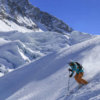
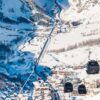
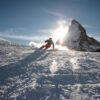
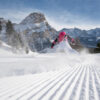
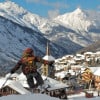
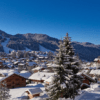
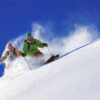
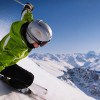
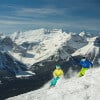
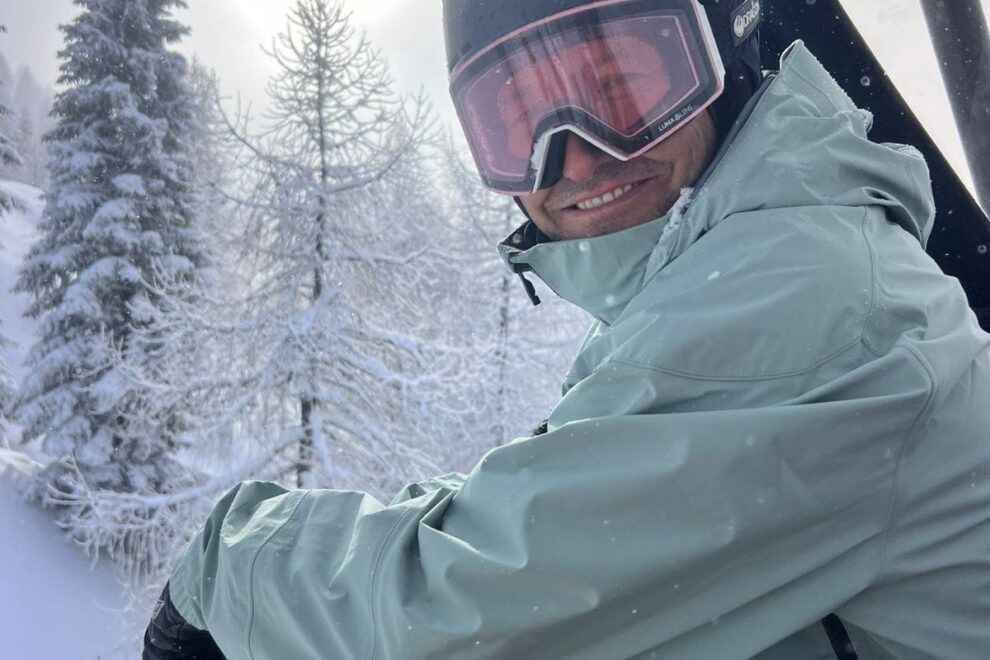
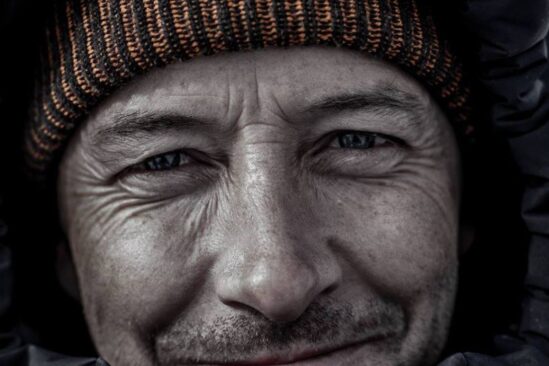
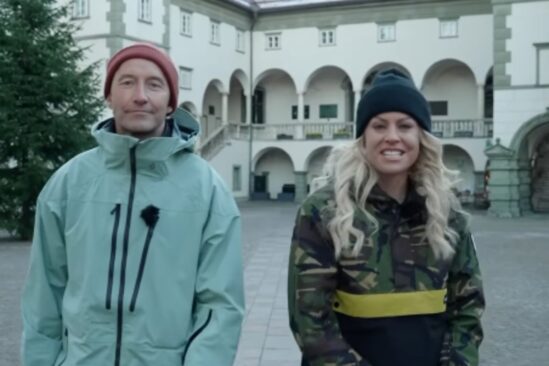
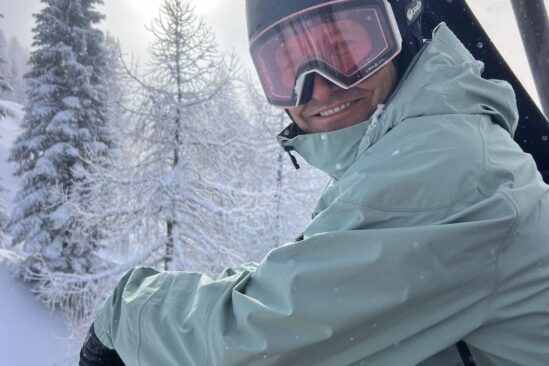
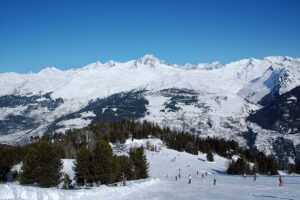

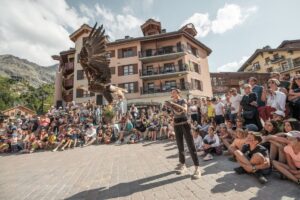
[…] this instalment, Iain speaks with BBC commmentator and Ski Sunday presenter Ed Leigh, about his career in broadcasting and the new Natural Selection […]